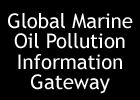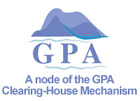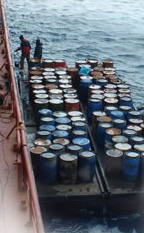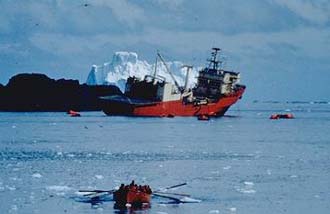|
International
actors and agreements in the region
 See
Global action and Global
actors.
See
Global action and Global
actors.
 UNEP Global programme of action for the protection of
the marine environment from land-based activities (UNEP
GPA). ••>
UNEP Global programme of action for the protection of
the marine environment from land-based activities (UNEP
GPA). ••>
Regional
conventions, agreements, action plans and actors
 Antarctic
Treaty • Protocol on Environmental Protection (Madrid
Protocol) • Committee for Environmental Protection
(CEP).
••>
Antarctic
Treaty • Protocol on Environmental Protection (Madrid
Protocol) • Committee for Environmental Protection
(CEP).
••>
 Convention on the Conservation of Antartic Marine Living
Resources (CCAMLR) • CCAMLR Commission.
••>
Convention on the Conservation of Antartic Marine Living
Resources (CCAMLR) • CCAMLR Commission.
••>
 Antarctica
has been designated as a Special
Area for the purpose of Annex I to MARPOL
73/78.
Antarctica
has been designated as a Special
Area for the purpose of Annex I to MARPOL
73/78.
Regional
reports on the state of the marine and coastal environment
 The
Committee for Environmental Protection (Antarctic Treaty)
is in the process of preparing a State of the Environment
report for Antarctica.
The
Committee for Environmental Protection (Antarctic Treaty)
is in the process of preparing a State of the Environment
report for Antarctica.
 "Ross
Sea Region 2001: A
State of
"Ross
Sea Region 2001: A
State of
Environment Report for the Ross Sea
Region of Antarctica". The New Zealand Antarctic
Institute.
 Global
Environment Outlook 3 (GEO3). Coastal and marine
areas: Antarctica. UNEP.
Global
Environment Outlook 3 (GEO3). Coastal and marine
areas: Antarctica. UNEP.
 State of the Antarctic environment. Presented by
UN Secretary General to the 1996 UN General Assembly.
State of the Antarctic environment. Presented by
UN Secretary General to the 1996 UN General Assembly.
 Large Marine Ecosystems (LME): Antarctic
LME. University of Rhode Island.
Large Marine Ecosystems (LME): Antarctic
LME. University of Rhode Island.
|
 |
National
action and actors
 British Antarctic Survey. An institute of the National
Environmental Research Council. Has undertaken most
of the British scientific research in and around Antarctica.
See the Oil
Contingency work.
British Antarctic Survey. An institute of the National
Environmental Research Council. Has undertaken most
of the British scientific research in and around Antarctica.
See the Oil
Contingency work.
 Australian Antarctic Division. Part of the Australian
Government's Department of the Environment and Heritage.
Administers Australia's wide-ranging activities in Antarctic
and subantarctic regions (Antarctic research and other
activities; administration and maintenance of presence
in Australian Antarctic and subantarctic territories).
See also "Keeping
Antarctic oil spills in check" (International
Conference on Contaminants in Freezing Ground).
Australian Antarctic Division. Part of the Australian
Government's Department of the Environment and Heritage.
Administers Australia's wide-ranging activities in Antarctic
and subantarctic regions (Antarctic research and other
activities; administration and maintenance of presence
in Australian Antarctic and subantarctic territories).
See also "Keeping
Antarctic oil spills in check" (International
Conference on Contaminants in Freezing Ground).
 New Zealand Antarctic Institute (Antarctica New
Zealand). Responsible for developing, managing and administering
New Zealand activities in Antarctica and the Southern
Ocean, in particular the Ross Sea Dependency. Responsible
for maintaining and enhancing the quality of New Zealand
scientific research, and taking an active role in environmental
stewardship through special projects and ongoing management.
New Zealand Antarctic Institute (Antarctica New
Zealand). Responsible for developing, managing and administering
New Zealand activities in Antarctica and the Southern
Ocean, in particular the Ross Sea Dependency. Responsible
for maintaining and enhancing the quality of New Zealand
scientific research, and taking an active role in environmental
stewardship through special projects and ongoing management.
 U.S. Antarctic Program. A section within the National
Science Foundation, supported by the U.S. Government.
Scientific research, and operational support of that
research, to understand the region and its ecosystems;
to understand its effects on (and responses to) global
processes such as climate; and to use the region as
a platform to study the upper atmosphere and space.
U.S. Antarctic Program. A section within the National
Science Foundation, supported by the U.S. Government.
Scientific research, and operational support of that
research, to understand the region and its ecosystems;
to understand its effects on (and responses to) global
processes such as climate; and to use the region as
a platform to study the upper atmosphere and space.
 Antarctica:
Fact Sheet (oil exploration, oil spills). U.S. Energy
Information System.
Antarctica:
Fact Sheet (oil exploration, oil spills). U.S. Energy
Information System.
Private
sector actors and initiatives. NGOs.
 Antarctic
and Southern Ocean Coalition (ASOC). A non-governmental
organisation comprised of 240 member groups in 50 countries.
Works "to ensure that the environment comes first
when decisions are made under the Antarctic Treaty System".
Antarctic
and Southern Ocean Coalition (ASOC). A non-governmental
organisation comprised of 240 member groups in 50 countries.
Works "to ensure that the environment comes first
when decisions are made under the Antarctic Treaty System".
|




